ECG Test in Nagpur

An electrocardiogram (ECG) is one of the only and speediest tests utilized to survey the heart. Anodes (small, plastic patches that stick to the skin) are set at certain spots on the chest, arms, and legs. The cathodes are attached to an ECG machine by lead wires. The electrical activity of the heart is at that point measured, deciphered, and printed out. No power is sent into the body.
Common electrical inspirations organize compressions of the unmistakable parts of the heart to keep blood streaming the way it needs to. An ECG records these motivations to see how fast the heart is beating, the beat of the heart beats (relentless or scattered), and the quality and timing of the electrical motivations as they move through the particular parts of the heart. Changes in an ECG can be a sign of various heart-related conditions. In any case, not all ECGs are the same.
What are the types of Electrocardiograms?
Nowadays, specialists utilize different types of electrocardiograms to provide point by point data approximately a patient’s heart wellbeing. Following are the three most common types of ECG tests in Nagpur.
Resting electrocardiogram
This is often the foremost common type of electrocardiogram and the most effortless to perform. It is done when the individual is still, hence the name resting ECG. This is often, as a rule, done as part of a schedule checkup to detect heart issues before any signs or indications show up. Your heart’s electrical action is recorded from 12 electrodes on your chest, arms, and legs at the same time.
Patients are required to lie down or sit down for 5-10 minutes for the test. The results often reflect your heart at rest. Since of the number of cathodes utilized, it is additionally known as a 12-lead ECG at rest.
Stress electrocardiogram
A work out electrocardiogram, too known as a treadmill test or push test, is performed on patients whereas strolling on a treadmill or riding a stationary bike. Work out escalated slowly and expanded whereas breathing rate and blood pressure are observed. This test is done to distinguish any coronary heart illness or to decide a secure level of work out for patients after a heart assault or heart surgery. Patients are frequently inquired to quickly and not take certain drugs for this test to yield clear and impartial results. This guarantees that the machine registers the heart without any impedances.
Holter screen
A Holter screen or ambulatory electrocardiogram is a sort of electrocardiogram utilized to persistently screen electrocardiographic checking over a period of 24 hours or more.Little plastic cushions or electrodes are connected to particular regions. The electrical action is at that point observed, measured, and printed out for afterward reference by the specialist. The cathodes are hooked up to a little, convenient machine strapped to your belt, permitting you to monitor your heart rate at home for a day or more.
What is an Echocardiogram?
An echocardiogram (echo) may be a graphic diagram of your heart’s improvement. Amid an echo test, your healthcare supplier employs ultrasound (high-frequency sound waves) from a hand-held wand set on your chest to require pictures of your heart’s valves and chambers. This makes a difference when the provider tests the pumping movement of your heart.
How is an ECG done?
There are a few ways to perform an ECG. More often than not, the test includes joining a few little, sticky sensors called anodes to your arms, legs, and chest. They are associated by wire to the ECG recorder.
You have not got to do anything extraordinary to plan for the normal ecg test in Nagpur. You can eat and drink as usual. Some time recently when connecting the cathodes, you may more often than not have to evacuate your upper clothing and may have to shave or clean your breasts. Once the anodes are in place, a clinic outfit may be given to cover you.
The check-up itself more often than not takes a couple of minutes, and you’ll be able to go home right after or go back to the ward in case you’re as of now hospitalized.
Calculate heart rate from ECG
The standard Electrocardiogram(ECG) paper permits an unpleasant assessment of the heart rate (HR) from the ECG recording. Each moment of time is spoken to by 250 mm (5 huge squares) along the horizontal axis. So, in the event that the number of expansive squares between each QRS complex is:
5 – Heart rate is 60 beats per miniature.
3 – HR is 100 per diminutive.
2 – HR is 150 per miniature.
If you are facing any problem with your heart and you stay in Nagpur, you should straightaway refer to Dr. Chetan Rathi, the best Cardiologist in Nagpur.
Types of Waves in ECG
The ECG shows various waves:
P wave
Depicts the electrical activity of the atria (upper chambers) as they contract
QRS complex
Represents the electrical activity of the ventricles (lower chambers) as they contract
T wave
Shows the electrical recovery of the ventricles as they prepare for the next contraction
Limitations Of ECG Test
- ECGs may not always accurately diagnose certain heart conditions.
- Additional imaging or stress tests might be required for a comprehensive evaluation.
- Some variations in ECG readings may not indicate a problem.
Our Medical Services

Best Cardiologist in Nagpur
Introducing Dr. Chetan Rathi, a distinguished Cardiologist in Nagpur, whose eminence transcends the realm of medical proficiency.
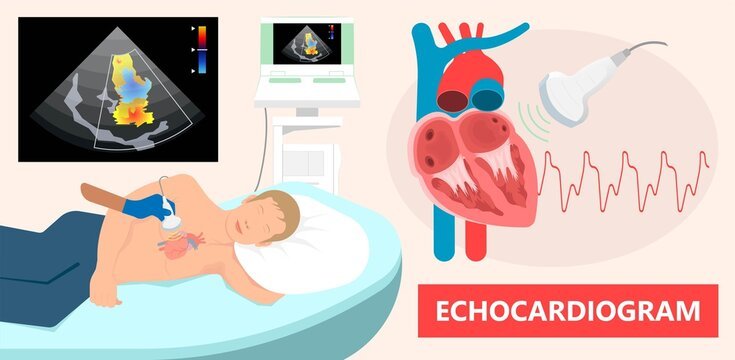
2D Echo
A two-dimensional Echocardiogram or 2D Echo test is a demonstrative test that employs ultrasound waves to evaluate the working of the heart.

Holter Monitoring
Holter monitoring measures your heart activity over an extended period, usually between 24 and 48 hours. Basically, a Holter Monitoring is a portable device which records the heart’s electrical signals.

BP Monitoring
Each time your heart beats, it pumps blood into your arteries. A blood pressure measurement may be a test that measures the force (pressure) in your arteries as your heart pumps.

Coronary Angiography
Coronary angiography diagnoses and evaluates coronary artery blockages. Contrast dye is injected into arteries, enabling X-ray imaging to visualize blood flow and identify narrowing or blockages.
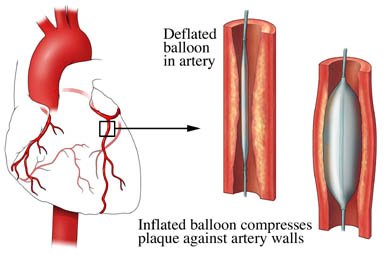
Coronary Angioplasty
Coronary angioplasty is a minimally invasive technique of abdominal artery angioplasty, which is used to treat coronary arteries that are obstructed or constricted and it is the most appropriate technique used by doctors for the treatment.
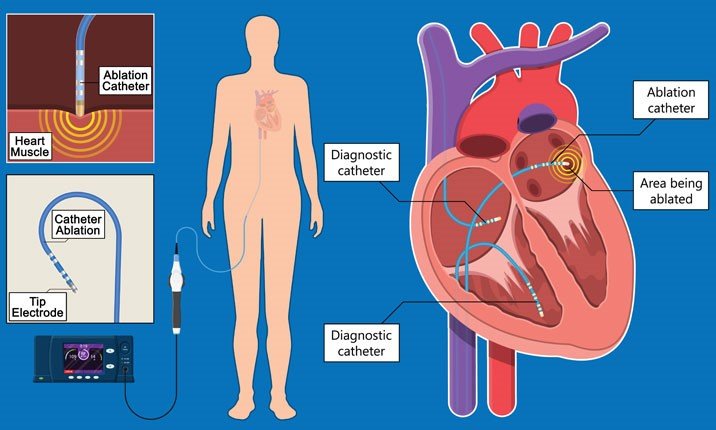
Electrophysiology Study
An Electrophysiology Study (EP study) is a test utilized to assess the heart’s electrical framework and check for abnormal heart rhythms. The natural electrical impulses coordinate the contractions of different parts of the heart.
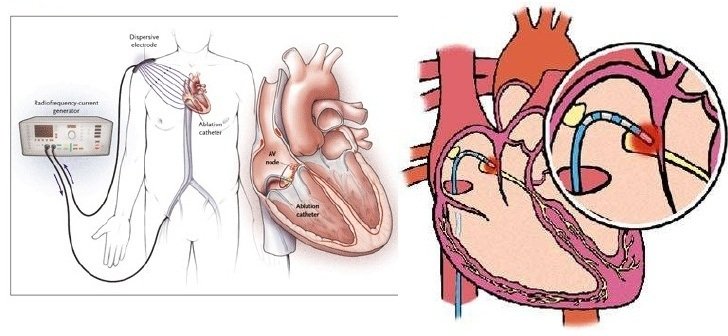
Radiofrequency Ablation
Radiofrequency Ablation (RFA) is a minimally invasive medical procedure that uses high-frequency electrical currents to generate heat, effectively destroying abnormal tissue or cells.
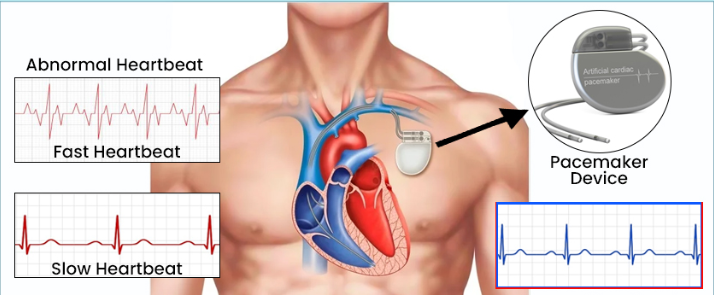
Pacemaker Implantation
Pacemakers are medical devices designed to support and regulate the electrical system of the heart, ensuring it functions properly. This medical procedure entails the insertion of a small device into the chest region.

ICD Implantation
An Implantable Cardioverter-Defibrillator (ICD) is a life-saving device that plays a crucial role in monitoring and regulating heart rhythms. It consists of a pulse generator and leads implanted in the heart.

CRT_P & CRT-D Implantation
CRT implantation is a process in which technological instruments known as CRT-P and CRT-D where p stands for pacemaker and d stands for defibrillator.

Valvuloplasty
A balloon mitral valvuloplasty is a process to extend a restricted heart valve and improve blood flow. The heart valves handle how blood drives through the heart.
Our Achievements in Numbers
Happy Patients
Years of experience
Specialisations
Hospital Associations
Awards & Recognition
Patient Testimonials
Dr Chetan Rathi sir is good cardiologist. I visited him many times with my family and friends for consult about issues related with cardiology.
Our Videos




Our Blog
 How Does Vitamin D Affect Your Heart?
How Does Vitamin D Affect Your Heart?
Vitamin D is much more than the “sunshine vitamin”; it is very important in the whole body of heart health. It works from bone health to an enhanced immunity function. Scientific studies show that this regulates cardiovascular health; therefore, it is a very great factor in preventing heart diseases and maintaining optimal heart function. This… Continue reading How Does Vitamin D Affect Your Heart?
Read More Understanding Diabetes: Causes, Symptoms, and Management
Understanding Diabetes: Causes, Symptoms, and Management
Diabetes mellitus is a chronic condition that affects the way your body processes glucose, or sugar. Unchecked, diabetes mellitus can lead to serious complications, such as heart disease and kidney damage, as well as nerve problems. Understanding the types of diabetes, the symptoms of diabetes, the causes of diabetes, and how to take care of… Continue reading Understanding Diabetes: Causes, Symptoms, and Management
Read More What Is Syncope and How Can It Be Prevented and Treated?
What Is Syncope and How Can It Be Prevented and Treated?
Syncope, also known as fainting, is a short-lived loss of consciousness which primarily results from a sudden decrease in blood flow to the brain. Although fainting can be alarming, syncope is generally not a serious condition and can be caused by a variety of reasons; however, it may indicate an underlying serious medical condition in… Continue reading What Is Syncope and How Can It Be Prevented and Treated?
Read More



